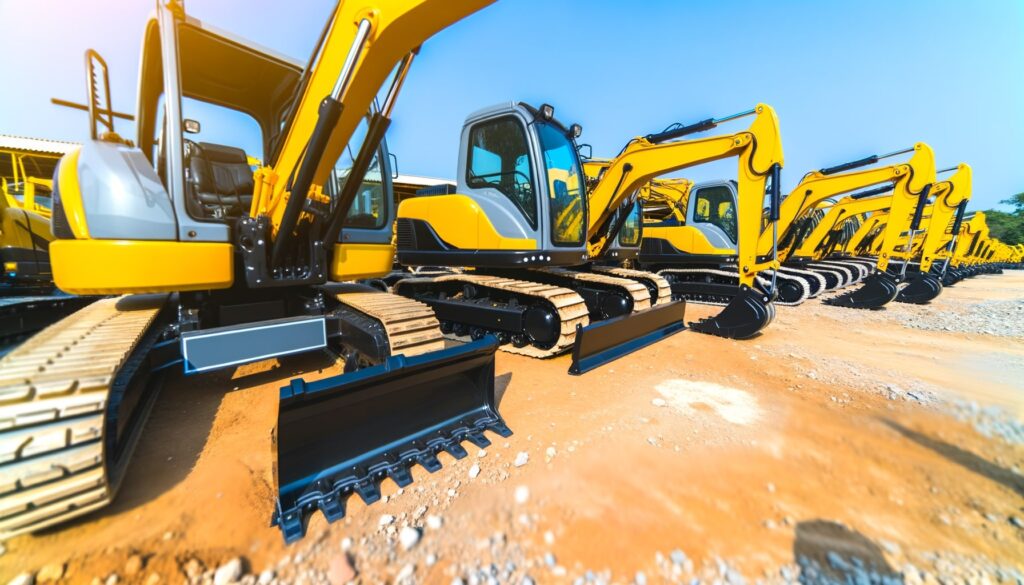Key Features to Consider
Several features are essential when considering an excavator purchase. One critical feature is the dig depth, which refers to how deep an excavator can dig. This is crucial for projects requiring significant excavation depth, such as foundation works. Another important aspect is the bucket capacity, determining the volume of material the excavator can handle at once. This directly influences the efficiency and speed of the excavation process. Additionally, the operating weight of the excavator matters, as it impacts the machine’s stability and the type of terrain it can operate on. Modern excavators also come equipped with advanced technology, including GPS and telematics systems, enhancing operational efficiency by providing real-time data on machine performance and location. These features enable better management of the excavation process and maintenance scheduling, reducing downtime and increasing productivity. Understanding these and other features will help you make an informed decision suited to your project’s demands.
Financing and Cost Factors
Purchasing an excavator represents a significant investment, and understanding the cost factors involved is essential. The initial purchase price varies widely depending on the type, size, and features of the excavator. It’s crucial to set a budget that aligns with your project needs and financial capacity. Additionally, consider other costs, such as maintenance, insurance, and operational costs. Maintenance costs can be substantial, especially for larger, more complex machines, so it’s essential to factor in regular servicing and potential repairs. Insurance is another critical aspect to protect your investment from unforeseen damages or theft. Many suppliers offer financing options, such as leasing or installment plans, which can ease the financial burden and provide flexibility in managing your cash flow. Comparing different financing options and negotiating the best terms with suppliers can help you optimize your investment and ensure the cost efficiency of your project.
Finding Reputable Dealer
Selecting the right dealer is as important as choosing the right excavator. Reputable dealers offer reliable machines and provide essential support and services, including maintenance, repairs, and spare parts. Start by researching dealers with positive reviews and a strong track record in the industry. Check for affiliations with established manufacturers, as this often indicates a certain level of quality and reliability. Visiting the dealer’s facility can provide insights into their operations and customer service standards. Good dealers should offer transparent pricing, clear warranty terms, and comprehensive after-sale support. Building a relationship with a reliable dealer can ensure ongoing support, allowing you to keep your excavator in excellent working condition and promptly address any issues that arise. This partnership can be invaluable, especially for long-term projects requiring consistent performance from your excavator.
Benefits of Buying New vs. Used
Deciding between buying a new or used excavator depends on various factors, including budget constraints, project requirements, and long-term operational plans. New excavators come with the latest features, technology, and warranties, providing peace of mind and reducing the likelihood of significant repairs in the early years of operation. They also tend to be more fuel-efficient and meet the latest emission standards, which can be beneficial for both operational cost savings and regulatory compliance. However, new machines come at a higher upfront cost. Used excavators, on the other hand, offer substantial cost savings and can be a viable option for projects with a limited budget. When purchasing used equipment, it’s essential to conduct thorough inspections and obtain detailed maintenance records to ensure you’re getting a reliable machine. Working with reputable dealers can mitigate the risks associated with buying used equipment, providing reassurances on the machine’s condition and operational history. Weighing these benefits and considerations will help you make a decision that aligns with your operational needs and financial plans.

